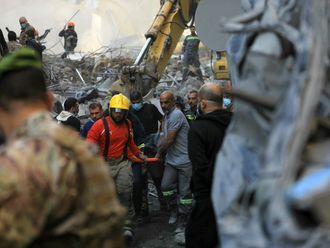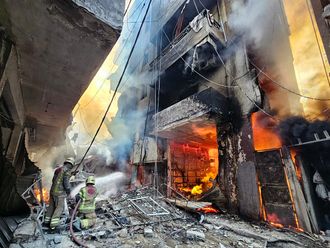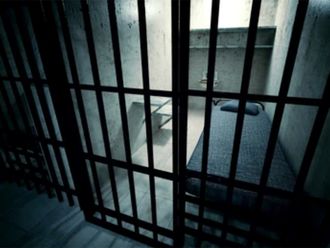Baghad: Iraq’s parliament on Monday approved five new ministers after months of delay and repeated setbacks to Prime Minister Haider Al Abadi’s efforts to replace the cabinet.
Lawmakers signed off on Al Abadi’s nominees to head the ministries of oil, transport, higher education, construction and housing, and water resources, but rejected the nominee for trade minister, according to a televised recording of the session.
The newly-approved ministers then took the oath of office in front of parliament.
The cabinet issue has led to repeated turmoil in parliament this year, making the legislature even less effective than usual at a time when the country faces a war against Daesh militants and an economic crisis caused by slumping oil prices.
Four of the five new ministers were the same as had been approved by lawmakers earlier in the year at a session that was later scrapped by a court ruling that dealt a blow to Al Abadi.
“Our campaign for reform continues, the appointment of new technocrat ministers is one step forward,” Al Abadi said on his official Twitter account.
But even with new ministers, addressing the widespread corruption, nepotism and incompetence that plagues Iraq’s government will be an extremely difficult task that will likely take years if not decades.
The premier announced his intention to introduce technocratic ministers into the cabinet in February, but has faced significant opposition from powerful parties that rely on control of ministries for patronage and funds.
Sessions on the cabinet issue were repeatedly overshadowed by antics in parliament, including a sit-in by MPs, verbal and physical altercations, and a vote to sack the speaker that resulted in two rival claimants to the post.
Lawmakers eventually approved several of Al Abadi’s nominees but disruptive members were barred from attending the session, leading it to be invalidated by a court along with the one in which MPs voted to remove the speaker.
Populist Shiite cleric Moqtada Al Sadr also took up the call for government of technocratic, independent ministers, organising repeated protests calling for that change and other reforms.
His supporters, angered by parliamentary inaction, broke into Baghdad’s Green Zone during several protests, storming parliament and temporarily occupying the building on one occasion, and breaking into the premier’s office on another.












